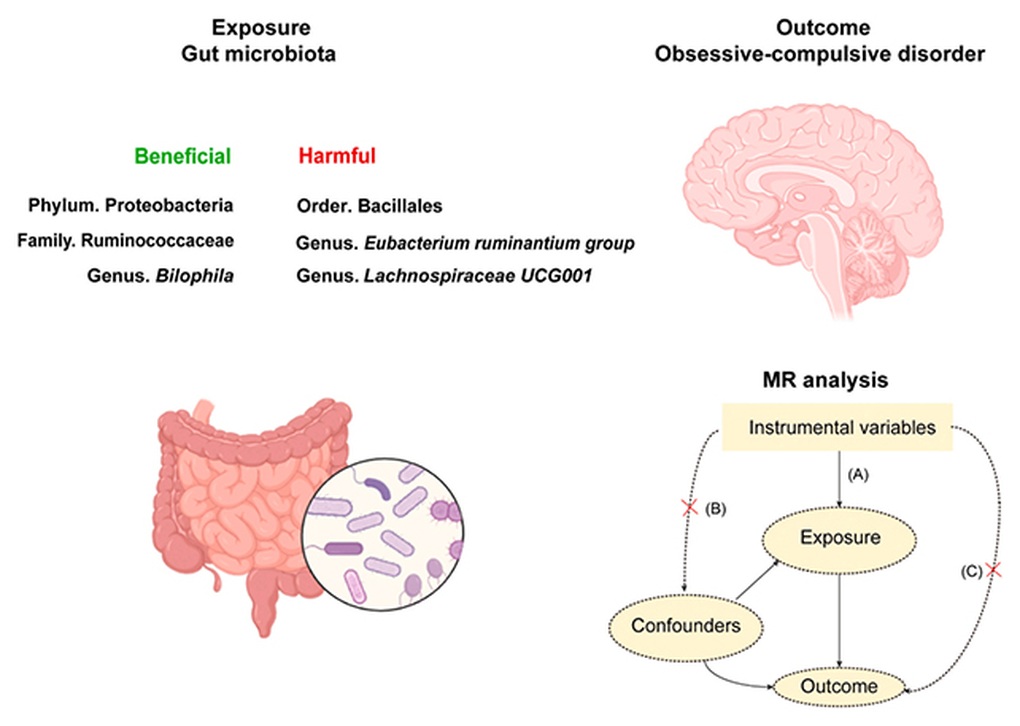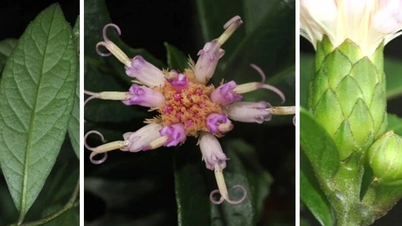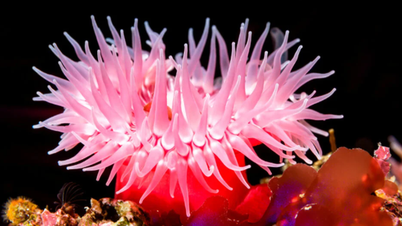Every new discovery about the root causes of OCD is of great value.
A new study from China suggests that the complex bacterial flora in the digestive tract may influence whether a person develops OCD. The study identified six types of bacteria that are linked to the condition.

Many previous studies have shown a strong link between brain and gut function. However, this is the first study to provide convincing evidence that gut bacteria may actually contribute to brain effects. The researchers used genetic data to support this argument.
Scientists at Chongqing Medical University in China said previous studies have not found a causal relationship between gut microbiota activity and OCD.
In a recent report, they wrote: "Our analysis suggests that specific gut microbiota may have a causal relationship with OCD, suggesting potential intervention strategies for the prevention and treatment of this disorder."

To explore this connection, the researchers used a genetic approach called Mendelian randomization analysis. This method allowed them to infer cause by analyzing genetic variations that influence both OCD and gut bacteria.
They assessed the association between genetic data and gut bacteria in 18,340 people, and the association between genetic data and OCD in another 199,169 people.
Although these were two separate datasets, this study used Mendelian randomization to bridge the gap and connect gut bacterial patterns to OCD.
Because our genes are fixed at birth and not influenced by environment or lifestyle, this approach helps strengthen the hypothesis that gut bacteria may directly cause OCD, rather than just be a consequence of it.
However, the research team also noted that more experiments and data are needed to confirm this causal link.
Three bacterial genera that tended to protect against OCD were Proteobacteria, Ruminococcaceae, and Bilophila; and three others that showed increased risk of OCD were Bacillales, Eubacterium, and Lachnospiraceae UCG001.
Interestingly, some of these bacteria have been found to be involved in the brain in other studies, such as a link between low levels of Ruminococcaceae and depression.
According to scientists, although cognitive behavioral therapy and selective serotonin reuptake inhibitors are used in the treatment of OCD, up to 25–40% of patients do not respond or respond suboptimally to these interventions.
The consequences for individuals with OCD and for those around them are enormous.
By discovering the link between gut bacteria and brain activity related to OCD, in the long term we may find a new way to prevent or treat this disorder by controlling gut bacteria.
Source: https://dantri.com.vn/khoa-hoc/phat-hien-bat-ngo-ve-nguon-goc-cua-chung-ocd-khong-nam-o-nao-20250708022114784.htm



![[Photo] Brilliant red of the exhibition 95 years of the Party Flag lighting the way before the opening](https://vphoto.vietnam.vn/thumb/1200x675/vietnam/resource/IMAGE/2025/8/27/e19d957d17f649648ca14ce6cc4d8dd4)


![[Photo] Many people eagerly await the preliminary review despite heavy rain](https://vphoto.vietnam.vn/thumb/1200x675/vietnam/resource/IMAGE/2025/8/27/4dc782c65c1244b196890448bafa9b69)
![[Photo] Prime Minister Pham Minh Chinh chairs meeting of National Steering Committee on International Integration](https://vphoto.vietnam.vn/thumb/1200x675/vietnam/resource/IMAGE/2025/8/26/9d34a506f9fb42ac90a48179fc89abb3)
































































































Comment (0)